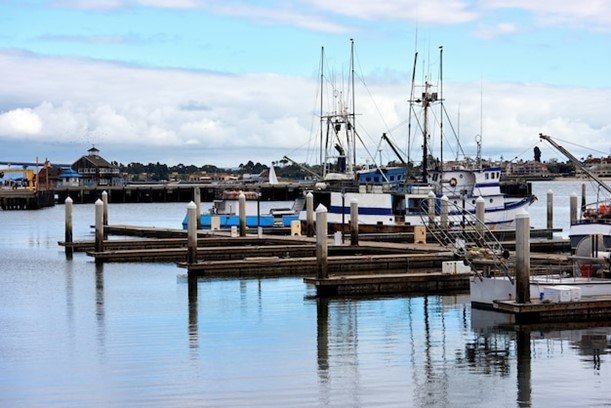Seattle, known for its deep connection to the maritime industry, is adopting a wave of new technologies to modernize marine electrical systems. These advancements aim to make vessels cleaner, quieter, and more efficient while meeting the rising demand for sustainable practices. With Seattle’s focus on environmental preservation and innovation, the city is setting the stage for a greener future on the water.
Let’s check out how marine electrical systems in Seattle, WA, are advancing and what this means for Seattle’s maritime community.
Shifting to Electric and Hybrid Propulsion in Marine Electrical Systems in Seattle, WA
One of the biggest shifts in the industry is the move from traditional diesel engines to electric and hybrid propulsion systems. Diesel engines, long the backbone of the maritime sector, produce harmful emissions and noise pollution. In contrast, electric-powered vessels offer a cleaner and quieter alternative.
In Seattle, many companies are working to replace diesel engines with electric systems. These new propulsion technologies rely on advanced batteries, which reduce greenhouse gas emissions and lower operating costs. Boaters and commercial operators alike benefit from less maintenance and fuel savings. As stricter environmental regulations are enforced, electric propulsion is becoming a practical solution for the maritime sector.
Advances in Battery Technology
The push for electrification wouldn’t be possible without advancements in battery technology. Modern marine batteries are lighter, more powerful, and longer-lasting than ever before.
Lithium-ion batteries have become the standard because of their high energy storage and faster charging times. These batteries can power everything from small recreational boats to larger commercial vessels. Seattle’s research institutions and tech companies are also working to improve battery durability so they can withstand saltwater and other harsh marine conditions.
As battery technology continues to upgrade, even large cargo ships and fishing fleets may adopt electric systems, making Seattle’s waterways more sustainable.
Integrating Renewable Energy
In addition to batteries, renewable energy sources are becoming a major part of marine electrical systems. Hydroelectric generators, solar panels, and wind turbines are now being used on vessels to supplement traditional power sources.
Solar panels are increasingly common on smaller boats, providing energy to power navigation systems, lights, and appliances. For larger vessels, wind-assisted power systems are being developed to generate clean energy while at sea. These renewable energy systems reduce fuel dependency and extend the range of electric and hybrid vessels.
Seattle marinas are also stepping up by offering charging stations powered by renewable energy. This makes sure that boats using these systems have access to green energy even when docked.
The Rise of Electric Ferries
Seattle’s busy ferry network is a cornerstone of the city’s maritime industry. Now, it’s also becoming a symbol of sustainable innovation. The transition to electric and hybrid-electric ferries is already underway, with Washington State Ferries leading the charge.
These new ferries will drastically reduce fuel use and emissions, cutting diesel consumption by as much as 95%. They are also expected to lower operating costs and reduce noise pollution, making the waterways more pleasant for both passengers and marine life.
The move toward electric ferries highlights how large-scale public transportation systems can adopt green technologies without sacrificing performance.
Smarter Electrical Systems
Technology is making marine electrical systems in Seattle, WA, not only cleaner but also smarter. New energy management tools allow boaters to monitor and control their systems with greater precision.
Advanced dashboards and apps provide real-time data on battery levels, power consumption, and system performance. These tools help operators identify issues before they become serious problems. Automation also plays a role, with systems that can prioritize power usage for essential functions like navigation and communication.
For boat owners in Seattle, these innovations make maintaining and managing electrical systems more convenient and reliable.
Challenges Along the Way
Despite this progress, there are still challenges left to overcome. Transitioning to electric systems can be expensive, especially for smaller operators. Retrofitting older vessels or purchasing new electric models requires significant investment.
Infrastructure is another hurdle. While Seattle marinas are starting to install electric charging stations, the network is not yet widespread enough to support a full shift to electric vessels. Expanding this infrastructure will be key to encouraging broader adoption. As technology improves and costs decrease, these obstacles are expected to diminish over time.
Training for the Future
As marine electrical systems advance, so do the skills required to maintain and operate them. Seattle is preparing its maritime workforce for these changes through training programs and workshops.
Technicians, engineers, and mariners are learning to manage, repair, and optimize electric and hybrid systems. These skills open up new career opportunities and make sure that Seattle’s workforce remains competitive in the rapidly changing maritime industry.
Investing in education and training is essential to supporting this transition and guaranteeing long-term success.
Conclusion
The future of marine electrical systems in Seattle, WA, is full of promise. Advancements in electrification, renewable energy, and smart technology are transforming the maritime sector, making it cleaner and more efficient. While challenges remain, Seattle is leading the way with bold initiatives and innovative solutions. As these changes take hold, the city’s waterways will become greener, quieter, and more sustainable.
Reach out to Hullux Marine for expert solutions in marine electrical systems!
Share this content:
